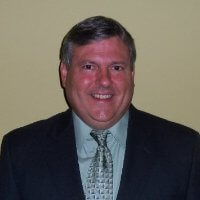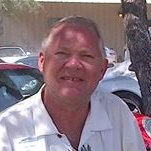My operating premise for why social networks and online communities are so important for process manufacturers and producers is the complexity of the engineering profession in these industries. Former Emerson Process Management president John Berra said it best in an Automation World column:
Our work demands the broadest skill set of any engineering discipline—it requires knowledge of chemical processes, mechanical, electrical, electronics, software, networks and IT (information technology). In a typical project, the automation amounts to less than 10 percent of the total cost, yet it has the most impact on the performance of the process.
And that list doesn’t include process safety, cyber security and other additional responsibilities. Social networks and online communities provide a path for those seeking expertise with those who have it.
I mention all this because I want to feature many of the experts from Emerson who not only participate in social networks and online communities, but also will share their expertise in person at the October 12-16 Emerson Exchange conference in Denver, Colorado. The list of accepted abstracts is now published.
Today, I’ll highlight Emerson’s James Beall who is presenting on two topics and co-presenting on three more. Here are the two on which he’s flying solo:
- Impact of Control Valve Performance on Control Performance. A significant amount of time is often spent specifying the proper control valve for the application, generally such aspects as material of construction, erosion and corrosion specification, shutoff classification, fugitive emissions requirements, etc. While these aspects are critical, other performance metrics such as dead band, resolution, process gain and step response time are vital to the good performance of the control loop that manipulates the control valve. The definition and importance of these performance metrics will be explained and field examples will be provided.
- Unleash the Power of the DeltaV PID Control. This presentation will explain useful features of the DeltaV PID function block including the error squared algorithm, two degrees of freedom PID structure, the PID Form, gain scheduling, dynamic reset limit, output signal characterization, feed forward and anti-reset windup settings. The new PIDPlus features, including variable execution rate and the new “recovery filter”, will be explained.
James is co-presenting with Emerson’s John Ward and refining professional from CHS Refining—Achieving Operational Excellence on a Semi-Continuous Process: A DeltaV APC Project. Their abstract:
Gary Hawkins, James and John are teaming on a presentation, Instrument Problem or Process Problem? Their abstract:The Delayed Coking unit is one of the most complex units in the refinery due to the semi-continuous nature and severity of the process. There are significant reoccurring process disturbances which make controlling a Coker extremely challenging. This project was chartered to minimize the process disturbances from coke drum switches, improve distillate yield from the fractionator, and decrease operator intervention. In this workshop we will present the strategies and methods used to evaluate unit performance and implement the APC that resulted in a significant return on investment.
Is this an Instrument Problem or a Process Problem? That is the question… and I’d like the answer now! This session builds upon the popular session at the 2014 EGUE. We will explore even more issues with process measurement and control in the process industries – from the transmitters and installation to the controllers to the control valves. From the common issues to the less well known. The key to profitability in the process industries is on-stream availability. This session is intended for both those new to process automation and the old-timers to come share their experiences.
I’ll save the third co-presentation for a future post to highlight the other experts involved.
If you have never been to an Emerson Exchange, the Board has put together a great list of reasons why you should attend and even a justification letter template to help sway your supervisor. I hope to see you in Denver!
You can also join the groups in your areas of interest in the Emerson Exchange 365 community to keep in contact with experts across the global all year round.
Update: James shared with me that Gary Hawkins is leading the Instrument or Process Problem presentation so I’ve updated the post to reflect this.







